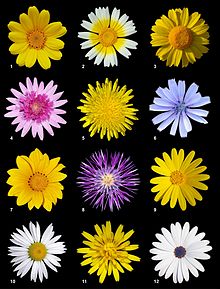Beneficial insect
Ladybirds
(also known as lady bugs in North America) are a beneficial insect commonly sold for biological control of aphids.Beneficial insects (sometimes called beneficial bugs) are any of a number of species of
pest control. The concept of beneficial is subjective and only arises in light of desired outcomes from a human perspective. In agriculture, where the goal is to raise selected crops, insects that hinder the production process are classified as pests, while insects that assist production are considered beneficial. In horticulture and gardening
, beneficial insects are often considered those that contribute to pest control and native habitat integration.
Encouraging beneficial insects, by providing suitable living conditions, is a pest control strategy, often used in
biological pest control sell many types of beneficial insects, particularly for use in enclosed areas, like greenhouses
.
Types



Some species of
bee balm and pineapple sage
for honeybees.
Wasps, especially fig wasps are also beneficial as pollinators.[1]
and other arthropods that feed on various plants.
Other insects commonly identified as beneficial include:[2][3][4]
- Aphid midges
- Assassin bugs
- Damsel bugs
- Earwigs
- Green lacewings
- Ichneumon wasps
- Minute pirate bugs
- Fireflies
- Praying Mantis
- Soldier beetles
- Syrphid flies
- Tachinid flies
- Trichogramma wasps
Attractive plants

Plants in the families Apiaceae and Asteraceae are generally valuable companions. Here are other plants that attract beneficial insects:
See also
- Beneficial organism
- Beneficial weeds
- International Organization for Biological Control
- List of companion plants – a common companion plant's function is the attraction of beneficial insects.
- List of beneficial weeds
- Organic gardening
- Satoyama
- Sustainable gardening
- Wildlife garden
References
- ^ "Wasp Pollination". U. S. Forest Service. United States Department of Agriculture. Retrieved 5 January 2021.
- ^ "Farmscaping to Enhance Biological Control" Archived 2010-04-26 at the Wayback Machine, ATTRA - National Sustainable Agriculture Information Service.
- ISBN 9781612122830.
- ^ Miller, Carley (2021-07-22). "16 Beneficial Garden Insects to Consider". The Green Pinky. Retrieved 2021-12-07.
Additional sources
- "Phillip Alampi Beneficial Insect Rearing Laboratory". State of New Jersey Department of Agriculture. Retrieved August 2, 2012.
- "Beneficial insect habitat in an apple orchard: Effects on pests". Research Brief #71. Center for Integrated Agricultural Systems, College of Agricultural and Life Sciences, University of Wisconsin-Madison. September 2004. Retrieved August 2, 2012.
- "Orchardists Install Beneficial Insect and Pollinator Habit". USDA Natural Resources Conservation Service. Archived from the original on February 21, 2013. Retrieved August 2, 2012.
External links
- Association of Natural Biocontrol Producers – trade association of the biological control industry
- Beneficial Insects for Hydroponics
